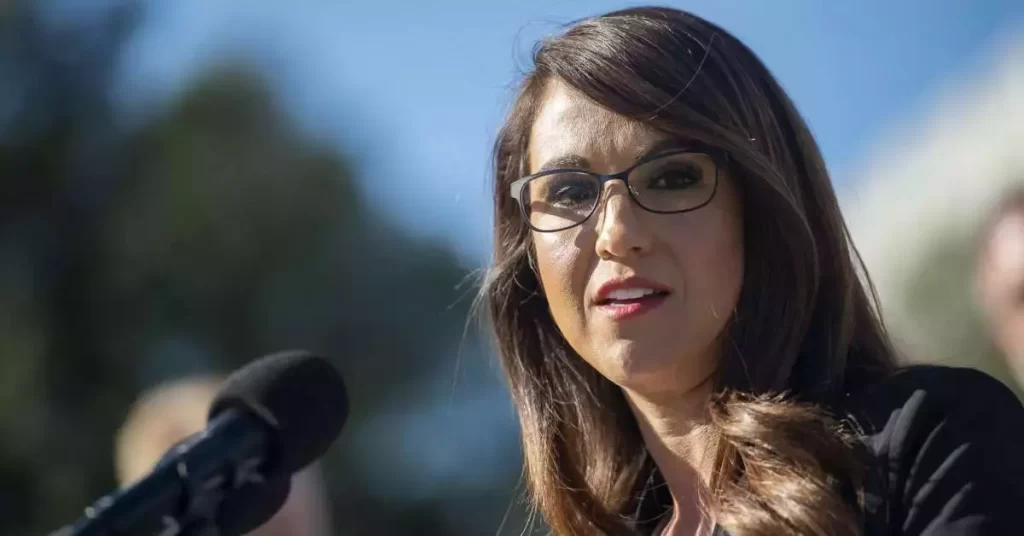Lauren Boebert Apologizes After Being Ejected From ‘Beetlejuice’ Musical
In a startling turn of events, Representative Lauren Boebert from Colorado found herself at the center of controversy after being ejected from a performance of the musical “Beetlejuice” in Denver. The incident, which involved disruptive behavior and alleged vaping inside the theater, has ignited a flurry of debates about public conduct, political image, and the responsibilities of elected officials.
The Disruptive Night at the Theater
The controversy unfolded last weekend at the Buell Theater in Denver, where Boebert, a Republican known for her outspoken demeanor, was attending a performance of the popular musical. Reports indicate that Boebert, along with an unidentified male companion, faced multiple complaints for disruptive actions, including vaping, singing, and causing a disturbance during the show.
A surveillance video, widely shared after the incident, depicted Boebert allegedly vaping inside the theater, a claim initially denied by her campaign. The footage also raised eyebrows as it seemed to capture a moment of explicit behavior between Boebert and her companion during the performance.
Boebert’s Apology and Campaign Response
In the aftermath, Boebert issued a public apology, acknowledging that her actions “fell short of my values.” She expressed regret for the unwanted attention brought to the community and emphasized that her actions were not intended to be malicious. However, the apology came after her campaign downplayed the incident, portraying it as Boebert enthusiastically enjoying a “zany” and “lusty” performance of “Beetlejuice.”
The conflicting narratives from Boebert’s campaign and the subsequent release of the surveillance video have added layers to the controversy, raising questions about transparency and accountability.
Past Incidents and a Pattern of Disruption
This incident is not the first time Boebert has made headlines for disruptive behavior. Known for her confrontational style, she gained attention for yelling at President Joe Biden during his 2022 State of the Union address and for theatrically pulling out a space blanket during Biden’s first address to Congress the previous year.
Boebert’s conduct has drawn comparisons to Representative Marjorie Taylor Greene, another controversial figure in the GOP. The two have clashed on the House floor, with Greene accusing Boebert of copying her articles of impeachment against Biden.
The Republican Brand of Disruption
The incident has sparked broader discussions about disruptive behavior among Republican lawmakers. Critics argue that Boebert’s actions reflect a broader trend within the GOP, where public disruptions, rule violations, and confrontational approaches are becoming synonymous with certain members. The comparison extends to Greene, highlighting a pattern of behavior that goes beyond individual instances.
The news piece delves into the implications of such behavior, questioning whether it is fair to penalize public officials for acting in a manner consistent with their public personas. The article also touches on the irony of Boebert being removed from a performance centered around unwanted guests, drawing attention to the theatricality of modern politics.
Public Perception and Political Image
As the news circulates, it raises questions about the public perception of elected officials and the impact of their behavior on political image. Boebert’s unapologetic and confrontational approach, both in public and on social media, has polarized opinions, with some seeing her as a refreshing voice and others as a disruptive force.
Ongoing Debate
The “Beetlejuice” incident involving Representative Boebert serves as a microcosm of the broader debates surrounding the conduct of elected officials. It highlights the fine line between personal expression and public responsibility, with implications for both political figures and the communities they represent. As discussions continue, the incident prompts reflection on the evolving nature of political theater and its intersection with the responsibilities of those in public office.



